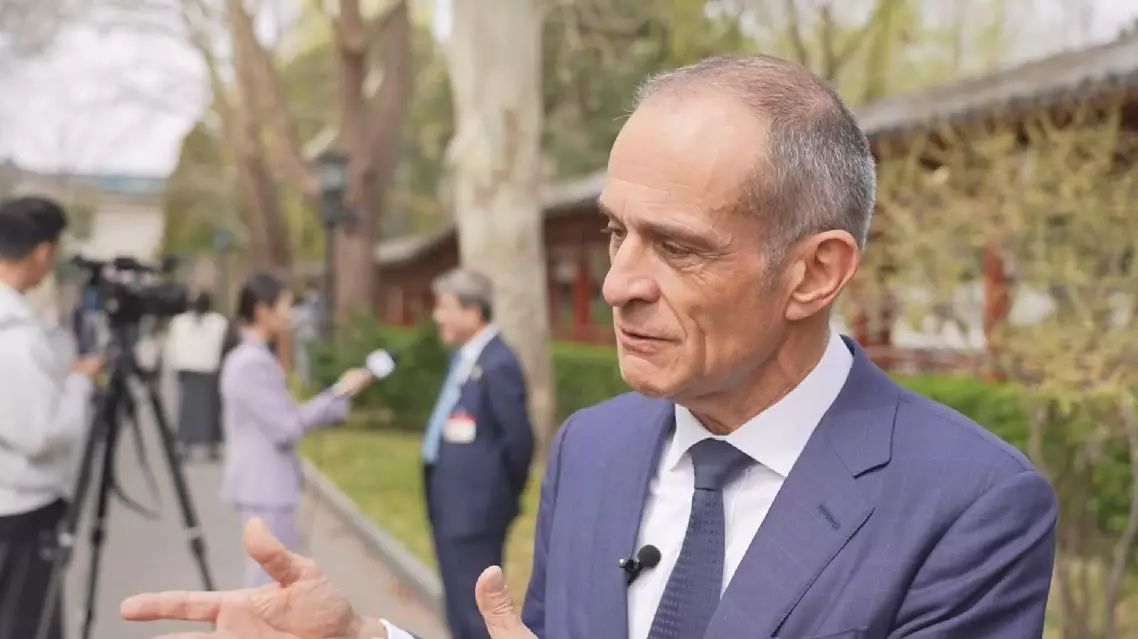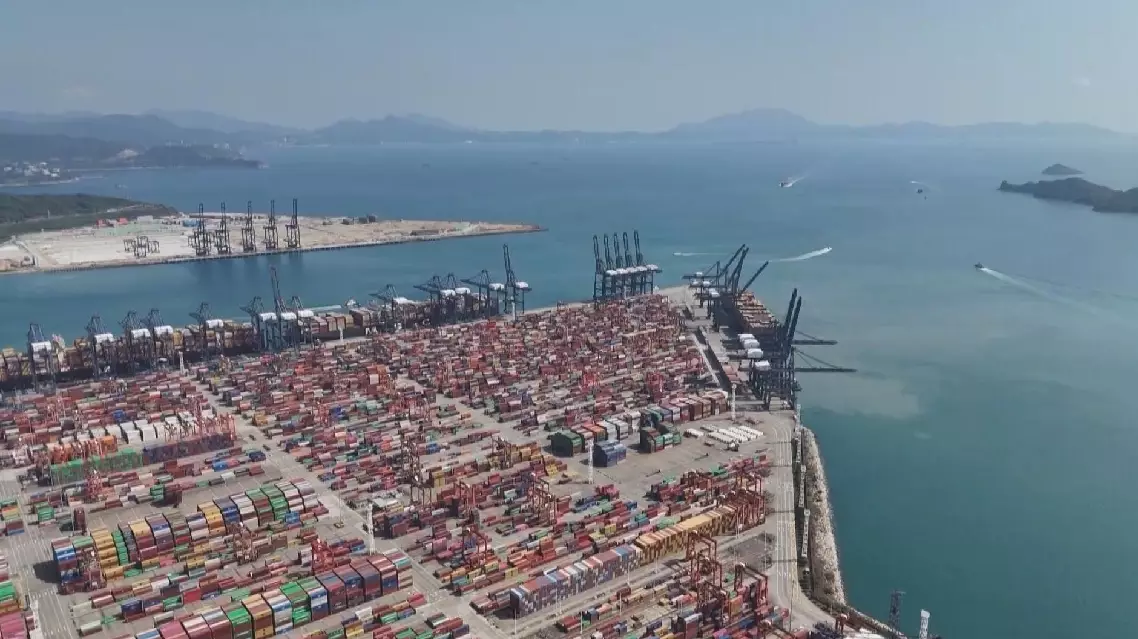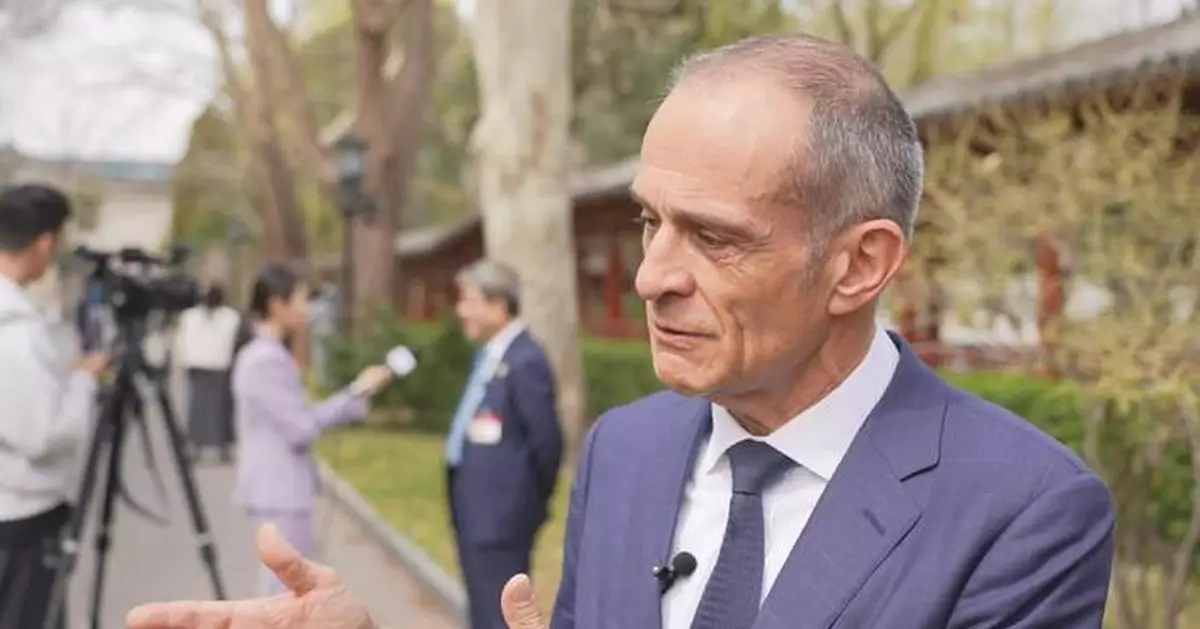The chairman of Schneider Electric has underscored China's increasingly pivotal role in driving global innovation, citing a combination of talent, a strong ecosystem, competitiveness, and its large scale as key factors behind the country's success.
Jean-Pascal Tricoire, chairman and former CEO of the major multinational company, discussed China's strengths in innovation in an interview with China Global Television Network (CGTN) on the sidelines of the two-day China Development Forum which opened in Beijing on Sunday.
"Half of the engineers in the world today are graduating in China. So that tells a lot about the focus that there is on science, and innovation comes a lot from science. I believe in science, I think science is bringing the right solution for the future. So we start with people and people are so important," he said.
He further highlighted China's dense network of companies, which fosters a unique, collaborative ecosystem.
"The second point is ecosystem. You've got such a density of companies who can work together that this density is creating an ecosystem which is difficult to replicate anywhere else," Tricoire said.
Another driving force behind China's innovation surge lies in the dynamics of its private sector, according to the business leader.
"Number three, there is competition, we spoke about that before. China is the most competitive of every country in the world. And that creates emulation effort, hard work, which goes into the sense of more innovation," he said.
"And finally, there is scale. You can test your ideas or your concept on much larger scale than anybody, than in any other place. So all of this makes (me) optimistic about the innovation capability here," he said.
Under the theme "Unleashing Development Momentum for Stable Growth of Global Economy", the China Development forum has attracted over 100 foreign guests, including 86 official representatives of multinational companies from 21 countries.

Schneider Electric chairman highlights factors behind China's strength in innovation
Many Chinese logistics companies are ramping up their shipments for the U.S. market following the latest round of mutual tariff adjustments between China and the United States.
China and the United States announced in Geneva on Monday a series of tariff modification measures aimed at easing trade tensions between the world's two largest economies.
The decision followed a two-day China-U.S. high-level meeting on economic and trade affairs, where both sides recognized the importance of their bilateral economic and trade relationship to both countries and the global economy, a joint statement said, noting that both sides emphasized the need for a sustainable, long-term and mutually beneficial economic and trade relationship.
The latest measures have driven up the businesses of shipping companies in Shenzhen City, in south China's Guangdong Province.
In a freight forwarding company in Shenzhen, the manager said that U.S. clients are experiencing shortages of supplies and are pressuring them to expedite shipments on the next available vessels. The staff members are busy organizing export release documents, with stacks of paperwork for shipments to ports in Los Angeles, New York, and Chicago.
"Since the afternoon of May 12, our shipment volume has increased by 40 percent. By June, it should at least be doubled compared to now," said Fu Shengying, deputy general manager of Guangdong Branch of WorldEx Group.
Fuwei Community in Bao'an District, Shenzhen, is an important hub for cross-border e-commerce logistics. Recent data shows that the average daily export shipment volume here has increased by 14 percent over the past three days compared to May 11.
In another logistics company specializing in cross-border e-commerce, orders from U.S. clients have also surged. According to the company, these clients are facing low inventory and need to restock immediately. Over the past few days, the company has received more orders than during the same period in the previous years.
The company manager noted that the surge in order volume has led to increased demand for container ships. Consequently, some shipping companies are starting to adjust their capacity allocation on a global scale.
"Many shipowners had previously adjusted their capacity, but now that a large volume of cargo is suddenly coming in, there is a shortage of capacity. Consequently, freight rates are rising rapidly. Despite this, many clients are still very eager to ship their goods," said Luo Rong, general manager of Shenzhen Branch of Dewell Group.
Yantian Port in Shenzhen is the busiest shipping hub in South China for routes between China and the United States, handling over a quarter of the country's exports to the United States. To meet the surge in demand from U.S. clients, Yantian Port is now scheduling six daily sailings to the United States.
The port staff said that they have recently received inquiries from several shipping companies and are coordinating berth arrangements and schedules. They are prioritizing vessels for U.S. routes at Yantian Port.
Summer is the traditional Christmas ordering season in the United States, and due to previous export suspensions, American sellers' inventories have been declining and urgently need restocking. As a result, demand for Chinese goods is expected to keep rising in the near future.

Chinese logistics enterprises ramp up shipments after China-US tariff adjustment






















































